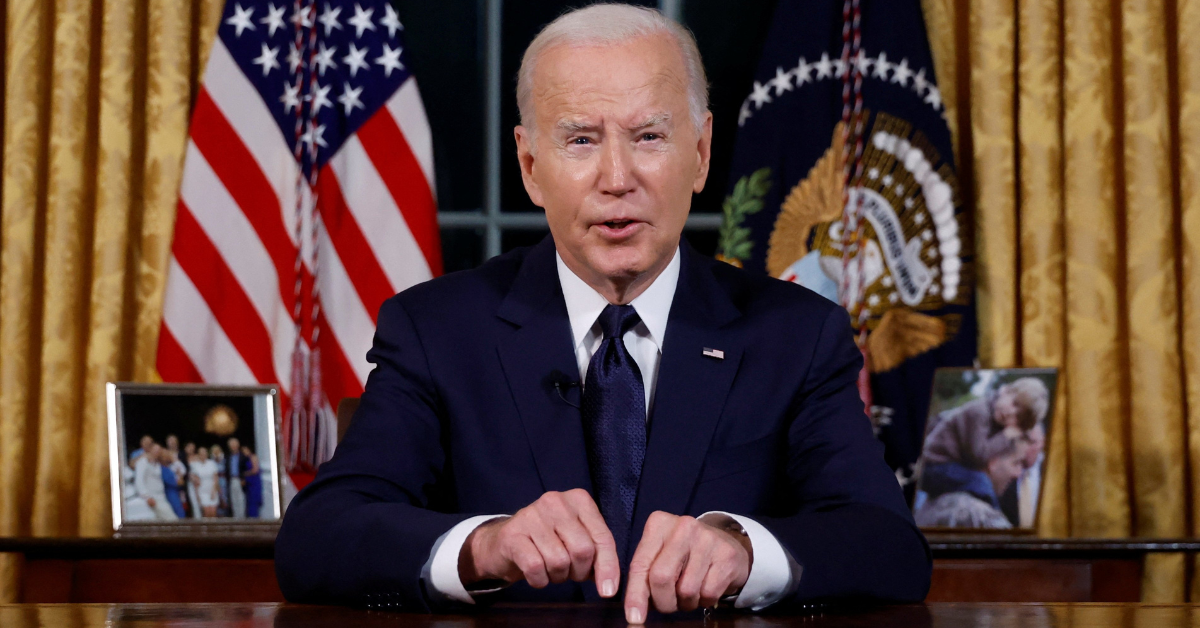US President Joe Biden has Finally Taken Big Action to Regulate Artificial Intelligence.

/ Biden’s executive order to regulate AI, ensure safety, privacy, and civil rights. Industry and government join forces to secure AI future.
By Nilesh Badwar.
Oct 30, 2023, 18:36PM IST
In a significant move, US President Joe Biden has signed an executive order aimed at regulating generative artificial intelligence (AI) and ensuring the safety of the public. The Biden administration is committed to enhancing the security and well-being of consumers and workers in the rapidly evolving world of AI. The executive order outlines eight key objectives for the development of AI, including safety, security, privacy, fairness, consumer protection, worker support, innovation, and responsible government use.
Phased Implementation for Comprehensive AI Regulation
These crucial initiatives will be rolled out in stages over the next year. In the immediate future, minor safety enhancements will be implemented within the next 90 days, while comprehensive reporting mandates may take up to a year to become fully operational. To oversee these initiatives, an “AI council” led by White House Deputy Chief of Staff Bruce Reed has been established.
Setting Standards to Safeguard Against AI Misuse
US government agencies have been tasked with creating standards to prevent AI misuse in fields like biological engineering. They will also work to establish best practices for content authentication and advance cybersecurity measures. The National Institute of Standards and Safety (NIST) will play a pivotal role in developing standards to test AI models before they are released to the public. Additionally, the Department of Energy and the Department of Homeland Security will focus on addressing potential threats to infrastructure and cybersecurity risks. A critical requirement for developers of large AI models is the sharing of safety test results.
Defense Production Act: Ensuring Public Safety
In a bid to bolster AI safety and security, the Biden administration has introduced new standards. Developers whose AI models could have implications for national or economic security will be subject to reporting requirements. The Defense Production Act has been invoked to ensure that companies developing potentially risky models must notify the federal government and share safety test results before making them available to the public.
Strengthening Cybersecurity with the AI Cyber Challenge
The executive order establishes a cybersecurity program based on the AI Cyber Challenge. This program aims to develop AI tools that can autonomously identify and address security vulnerabilities within software infrastructure.
Verifying AI-Generated Content
Federal agencies are now tasked with creating a watermarking system to verify whether content has been generated by AI. This system will adhere to technical standards, promoting the wider adoption of digital watermarking. This initiative will enable federal officials to ensure the authenticity and reliability of government messages. Notably, AI companies like OpenAI, Alphabet, and Meta Platforms have voluntarily committed to watermarking AI-generated content to enhance overall safety.
AI Bill of Rights and Civil Rights Protections
In an effort to protect user privacy, the White House has urged Congress to pass data privacy regulations and promote the development of “privacy-preserving” techniques. The AI Bill of Rights, released last October, is a significant step in combating discriminatory AI practices.
The new executive order extends these principles to include landlords, federal programs, and contractors. It also directs the Department of Justice to develop best practices for investigating and prosecuting AI-related civil rights violations. Furthermore, the executive order emphasizes the development of privacy-preserving techniques, establishes a safety program for AI-based medical practices, and supports educators in utilizing AI-based educational tools.
AI and Job Security
While AI presents numerous business opportunities, it also raises concerns about job security. To address this, the Biden administration will provide guidelines and best practices for employers. Simultaneously, the Department of Labor and the Council of Economic Advisors will conduct a thorough study on how AI could impact the job market. The administration is committed to ensuring responsible government development and deployment of AI.
AI.gov: Attracting AI Talent to Federal Jobs
To bolster the workforce in the AI sector, the US government is launching AI.gov, a new jobs portal. This portal, scheduled for release on Monday, aims to attract more AI talent to federal positions. It will provide valuable information and guidance on available fellowship programs.
White House Deputy Chief of Staff Bruce Reed has hailed this executive order as one of the most robust sets of actions taken by any government to ensure AI security. The order addresses not only AI security but also privacy concerns, housing discrimination, and potential job displacement. It represents the next phase in the administration’s strategy to harness the benefits of AI while mitigating associated risks.
Conclusion
In a decisive move, US President Joe Biden has taken significant steps to regulate artificial intelligence (AI) and prioritize the safety and well-being of the public. The executive order outlines eight key objectives for AI development, and these initiatives will be implemented in stages over the next year. Notably, safeguards have been put in place to prevent AI misuse and bolster cybersecurity.
Source: GadgetsNow.
